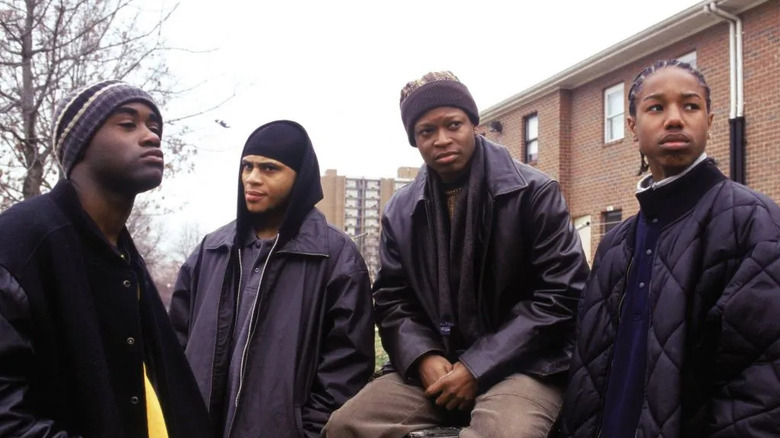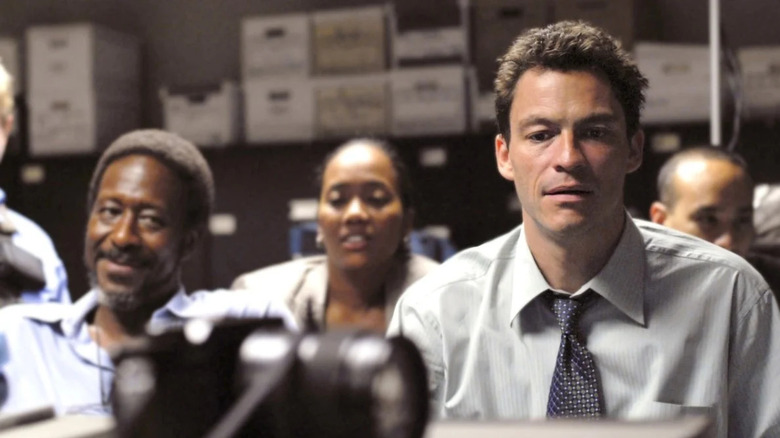Why The Wire Had To End After Season 5
Watching "The Wire" today, it's easy to forget how much of a game-changer it was in a sea of episodic television with tidy resolutions. Created by David Simon and pitched ostensibly as a "cop show" about wiretapping, the Baltimore-based HBO crime drama was a forerunner for what we now call "prestige tv" — the sort of thoughtful literary storytelling that requires viewers to put their phones down and pay attention to a cumulative, carefully constructed narrative. Each chapter in the saga contains a different focal point, from street corners where drugs are sold to the docks where stevedores facilitate distribution of the illicit to the school system that gives kids little protection from the drug game.
Though the series came to an end on March 9, 2008, after telling its story over 60 episodes and five sprawling seasons, strong attention to detail was meticulously planned in the writers' room from the jump. In an interview with Slate Magazine, Simon looked back on the series and its long road to success, a success that he credits to a reverence for the big picture:
"I keep using this metaphor whenever I'm on set and we have problems with the actors—and we don't have many problems — losing sight of the whole. I say, 'We're building a house here.' Every single one of us, all the writers, all the actors, all the crew, all the directors; everything in our bag of tricks, it's all tools in the toolbox. It's not about how often the hammer comes out; it's about the house we're building. So, all the details are essential. The only thing I care about in the end is the house. In the writers' room at least, that's a given."
All in the game
Alan Sepinwall's chronicle of small-screen game-changers, "The Revolution was Televised," gives an account of "The Wire" as hard-won. HBO executives like Chris Albrecht would hesitate to renew successive seasons of the series that observe the failed War on Drugs with a cumulative effect. David Simon sums it up in Sepinwall's book by saying "People say now that when you get to Episode 4, it works. It's not that Episode 4 is good. The thing is, it's the whole. We're interested in what the whole story is about."
By season 5, detractors of "The Wire" had come around to its multifaceted storytelling as part of the show's comprehensive — and satisfying — experience. Having tackled the systems of judicial and legislative agencies involved in botching the American drug crisis, the writers turned an eye toward the media that failed to competently inform the public. Simon told Slate that there was little left to say for any subsequent seasons:
"The big thematic heavy lifting was done in Seasons 1 and 2, when Ed and I were figuring out what we wanted to do: how many seasons, etc. We came up with five. We talked about many things; nothing seems substantial enough for a Season 6. When other writers came onto the show, George Pelecanos, Richard Price, we would throw it at them: 'This is what we came up with, five things. If there's anything else you have, any ideas for extending the series, say so.' When I've done my begging with HBO — and begging it is — it has been on behalf of those five seasons."
Though poorly received by critics, the final season's plot added another layer to the novel-like method of the show entire, putting in the time and effort to outline the nuances involved in a national problem that's anything but black-and-white.

